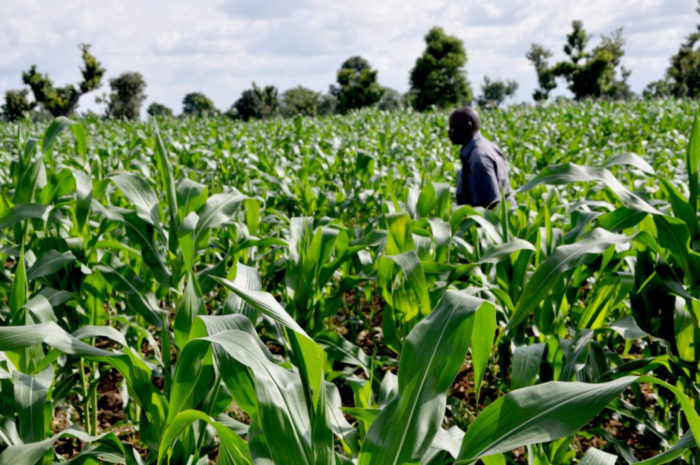President, Soil Science Society of Nigeria (SSSN), Professor Victor Chude has on Tuesday declared that Nigeria’s soils are still very low in fertility compared to what was obtainable in other parts of the world.
He said this was responsible for high usage of fertilizer especially in northern part of the country.
Chude while speaking during the opening of 42nd annual conference of Soil Science Society of Nigeria (SSSN) themed “Sustainable Management of Soil and Water Resources for Food Security, Climate Change Adaptation and Mitigation” held at Institute of Agricultural Research and Training (IAR&T) in Ibadan, the Oyo state capital declared that all efforts must be put in place to tackle the impending effects of climate change on food production.
The SSSN President while speaking with journalists said “Presently the state of our soil in Nigeria, our soils are very low to medium in fertility, right, low to medium, if you start from the northern part of the country moving south, the soils up north are lower in fertility than the ones down south, so in terms of fertilizer use, fertilizer use is higher in the northern part of the country because of the low fertility in northern part of the country.
“In the southern part of the country, you have a lot of turnover, left or return of pillage back to the soil and all that, that is the stage of the soil in Nigeria.”
He maintained that the theme of the conference was chosen to draw attention of policy makers to the impending effects of climate change.
Chude however cautioned that efforts must be put in place to address the problems of climate change due to the adverse effects it will have on food production in the country.
He said “Today has been set aside for the 42 annual conference of the Soil Society of Nigeria and the theme is Sustainable Management of Soil and Water Resources for Food Security, Climate Change Adaptation and Mitigation, the theme has been chosen to draw attention of our policy makers to sustainable management of soil and water in addressing the problems of climate change which is very real.
“If nothing is done about climate change you know what the consequence is, the first thing is adverse effects on food and nutrition, so over the last couple of years, our members have been working on research of this area of agricultural and that is what we are going to be sharing amongst ourselves and members of the press will have a lot of things to share with Nigerians.
To tackle this problem, Chude suggested efficient management of the soil across the country.
He said “Efficient management that makes the soil sustainable so that they can save future generations. What I am saying is that there would be an interactive session with policy makers, here at this conference we are going to issue a communique where some messages would go to the policy makers in terms of the need to manage our soil and water.”
At the conference were the Executive Director of the institute, Professor James Adediran, top management officials of the institute and members of the association from various parts of the country












